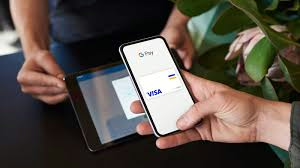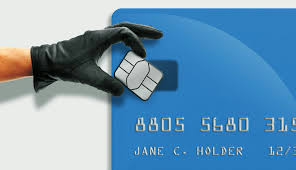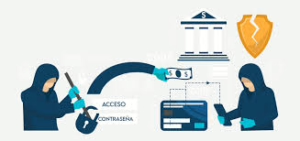Financial scams and fraud are like chameleons, taking on various appearances to deceive unsuspecting individuals. They often creep into our lives through familiar channels—a text message that pings on your phone, an email that pops up in your inbox, or a phone call from an unknown number. What makes these deceptive communications particularly insidious is their clever design; they frequently masquerade as official correspondence from your bank, making them all the more convincing.
The Canadian Anti-Fraud Centre has shed light on a prevalent scheme where fraudsters impersonate bank employees, cleverly weaving a web of deceit to extract sensitive banking and personal information from their victims. The chilling reality is that countless Canadians have encountered these scams, sometimes without even realising it.

Picture this: you receive a seemingly innocuous text or email notifying you that your bank account has been frozen. Panic sets in as you read further, noting a link inviting you to a website where you are urged to enter your details to “reactivate” your account. It’s a trap designed to ensnare the unwary. Other times, the fraudster takes a more direct approach, dialling your number and adopting the guise of a bank representative who insists they need your assistance for an ongoing fraud investigation.
The ultimate aim behind many of these devious schemes is precise: to pilfer your personal or banking information, thereby gaining unauthorised access to your accounts. Alternatively, they may try to convince you to wire money or purchase gift cards, instructing you to send the funds directly to them—a financial heist carried out with alarming ease.
While it’s true that banks require certain personal information to verify your identity and provide services, it’s crucial to understand that stringent regulations dictate what and how they can ask. Many of the requests made in these scams are outright ludicrous and would never be posed by legitimate banking personnel.
One of the most effective defences against these types of scams is knowledge—specifically, understanding what your bank would never ask you to do. For instance, it’s essential to recognise that your bank would never initiate a call requesting your personal information.
When you contact your bank with inquiries or requests for transactions, it’s common for the employee on the line to ask for some details to confirm your identity. This is standard practice; they need assurance that you are indeed who you claim to be before proceeding with any service.
Staying informed is your greatest ally in navigating this treacherous landscape of financial fraud. By familiarising yourself with your bank’s protocols, you equip yourself with the armour necessary to fend off these cunning scams and protect your hard-earned assets.

In a world where trust is paramount, it’s essential to recognise that your bank operates on principles of honesty and transparency. They would never put you in a position where keeping secrets or being deceitful is necessary. Unfortunately, the shadowy realm of scams often disrupts this trust. Take, for instance, the cunning tactics employed by fraudsters who prey on unsuspecting victims. These scammers have developed elaborate schemes, convincing individuals to transfer money via wire or purchase gift cards under dubious pretences.
In their relentless pursuit of quick access to funds, these fraudsters may instruct their targets to avoid mentioning the true purpose of their transactions to bank staff. They might even go so far as to fabricate a believable story, claiming that the funds are intended for a family member living abroad, creating a veil of legitimacy over their deceitful actions. A particularly notorious example of this is the Grandparent Scam, where a scammer masquerades as a distressed grandchild in need of urgent financial help.
It’s crucial to remember that honesty is your best ally when dealing with bank personnel. These employees serve as your first line of defence against financial deceit, equipped to assist and protect your assets from potential threats. When faced with any request or instruction that feels off, don’t hesitate to share the details with them.
Moreover, consider the alarming tactics some fraudsters employ through fraudulent communications. Picture receiving an unexpected text or email that claims your account has been locked or threatens immediate service cancellation unless you follow a suspicious link and divulge sensitive information. Know this: your bank would never resort to intimidation or pressure tactics to elicit information or action from you.

They wouldn’t rush you into making decisions or force you to comply with unreasonable demands. Instead, they prioritise your security and peace of mind, encouraging you to take your time and ensure that everything is above board. In this digital age fraught with deception, it’s vital to remain vigilant and trust your instincts—your bank is there to support you, not to ensnare you in a web of lies.
Imagine a scenario where you receive an unexpected message that seems to be from your bank, urging you to take immediate action. You might feel a rush of anxiety as you read the words that threaten to freeze your account or put your hard-earned money at risk. But pause for a moment and consider this: your bank would never pressure you in such a manner. If you find yourself in this situation, it’s wise to delete that message without hesitation. Genuine communications from your bank won’t come with a sense of urgency or demands to click on links—those are clear indicators of a scam.
Now, picture a different scenario. You answer the phone only to hear someone claiming to be an investigator from your bank’s fraud department. This so-called employee introduces themselves with a name and an employee number that sounds official enough, but something feels off. They inform you that suspicious activities have been linked to your accounts or that they are conducting an investigation into fraudulent behaviours at your local branch. The caller insists that your cooperation is crucial and must remain confidential.

In an attempt to gain your trust, the fraudster may even dangle the prospect of financial reward for your help. They craft a narrative that pulls you into their web, encouraging you to share sensitive banking details under the guise of aiding law enforcement. As you comply, thinking you’re doing the right thing, they may infiltrate your personal computer and gain access to your bank accounts. It’s not uncommon for a small deposit to appear in your account during this process—a deceptive trick where the scammer transfers funds from other sources like your credit card or line of credit to make it seem legitimate.
It’s important to remember that neither your financial institution nor any law enforcement agency would ever ask you to assist in an investigation or offer compensation for your help. In fact, they prioritise your security and would never request that you buy gift cards or cryptocurrencies as part of any legitimate process. So, stay vigilant and protect yourself from these elaborate schemes, knowing that if something feels off, it probably is.

Imagine a world where the warmth of trust blankets every interaction, especially when it comes to our finances. Picture this: You receive a message from someone who claims to be a close friend or beloved family member. Their words flow with urgency, painted with a sense of crisis, and they request your assistance in acquiring gift cards or cryptocurrency to navigate their purported troubles. This scenario is all too familiar in a realm where deceit lurks in the shadows. Often, these impersonators gain access to compromised email accounts, weaving elaborate tales designed to tug at your heartstrings.
In some twisted cases, the con artist may even go so far as to deposit money into your account. This could be through dubious checks or by exploiting your credit lines, creating an illusion of legitimacy. Once this money appears, they will urge you to use it to buy gift cards or cryptocurrency, insisting that you share the activation codes with them afterwards. It’s a clever ruse that preys on your goodwill but one that ultimately leads down a treacherous path.
Should you ever find yourself receiving a call or email that demands you purchase gift cards or cryptocurrency, take heed: this is a scam. The nature of gift cards makes them akin to cash; once you’ve made the purchase, retrieving your funds becomes nearly impossible.
Now, let’s shift our gaze to another scenario, one where the stakes are equally high. Imagine being contacted by someone claiming to represent your bank, urging you to wire money or make an Interac e-Transfer. It’s crucial to remember that your financial institution would never request such actions as part of any investigation, whether it concerns fraud or internal matters. They operate on principles of security and trust, steering clear of any requests that might compromise your financial safety.
Once the money leaves your hands through a wire transfer or Interac e-Transfer, time becomes your enemy. There’s only a fleeting window in which you might be able to halt the transaction, and after that, reclaiming your funds can be an uphill battle.

Finally, consider another red flag: if anyone asks for access to your computer under the guise of helping with technical issues or securing your information, know that this, too, is a deceptive tactic. Your bank would never seek such access; their priority is to keep your personal and financial information secure.
In this intricate dance of trust and deception, awareness becomes your strongest ally. Stay vigilant and remember—your bank is there to protect you, not to put you in precarious situations.
In the realm of banking, there exists a fundamental truth: your bank would never seek permission to access your computer. Imagine, if you will, a scenario where a voice on the other end of the line claims to represent your bank, insisting that they require remote access to your device. This is a moment that demands your utmost caution.
Picture yourself receiving such a call. The individual, with an authoritative tone, urges you to install software on your computer, claiming it’s for your security or account verification. However, let this be a red flag—a warning bell echoing in your mind. Under no circumstances should you comply with such a request. Instead, envision yourself calmly hanging up the phone, the weight of uncertainty lifting from your shoulders.

What follows is crucial: you must take proactive steps to safeguard your finances. Reach for your phone and dial a number you trust implicitly—perhaps the one printed on the back of your debit or credit card. This number leads you directly to your bank, ensuring that you’re connecting with genuine representatives who have your best interests at heart.
Now, let’s explore how you can shield yourself from falling prey to these insidious scams. It’s imperative to remain vigilant and educated about potential threats. Always remember that legitimate institutions will never pressure you into making hasty decisions or divulging sensitive information over the phone. Trust your instincts; if something feels off, it probably is.
In the end, staying informed and cautious is your best defence against these fraudulent schemes. By adhering to these principles, you can navigate the financial landscape with confidence and peace of mind, knowing that your security is firmly in your own hands.
In a world increasingly filled with deceit, protecting oneself from scams has become more vital than ever. Picture yourself at home, enjoying a peaceful afternoon, when suddenly the phone rings. A sense of unease washes over you as you glance at the caller ID, and it appears to be your bank. It’s easy to feel a surge of panic, thinking that urgent matters may need your attention. But before you dive headfirst into the conversation, remember this crucial lesson: not all is as it seems.

Imagine you answer the call, and a voice on the other end introduces themselves as a representative from your bank. They ask for your details to “verify” your identity. Instinctively, you might trust them but hold that thought. The first step in safeguarding yourself against such scams is to remain vigilant. If a stranger contacts you without prior notice, it’s essential to approach the situation with scepticism. Jot down their name, thank them politely, and hang up. Instead of engaging further, take a deep breath and use a different phone line to reach your bank directly using the number printed on your debit card or found on their official website. This simple act can mean the difference between security and vulnerability.
Now, let’s explore another layer of this treacherous web. Even if your caller ID proudly displays the name of your bank, don’t let that lull you into a false sense of security. Scammers are tech-savvy and often employ call spoofing techniques, making it appear as though they’re legitimate representatives of trusted institutions. That friendly voice could very well be an imposter trying to manipulate you into divulging sensitive information.
As the conversation unfolds—should you choose to engage—be acutely aware of what information is being requested. Banks have strict protocols and will never ask for your passwords or PIN over the phone. If at any point during the call you feel uneasy or sense that the questions are crossing personal boundaries, trust your instincts. It’s perfectly acceptable to terminate the call without hesitation.

So, how can one arm themselves against these cunning fraudsters? Start by familiarising yourself with your responsibilities as an account holder. Your bank provides this crucial information to ensure you understand what is expected of you and how to protect yourself.
Enabling two-factor authentication (2FA) is another formidable shield against potential threats. This extra layer of security acts like a fortress around your online accounts. Delve into the security settings of your email, social media platforms, and banking apps—wherever 2FA is available, turn it on! Although this feature is seldom activated by default, it significantly enhances the protection of your digital presence.
By remaining vigilant, verifying unexpected communications, safeguarding your personal information, and utilising advanced security measures like Two-Factor Authentication, you can confidently navigate the murky waters of modern scams. In this ever-evolving landscape of technology and deceit, knowledge and caution are your best allies.
Maxthon: Your Reliable Ally in Online Privacy
In the vast realm of the internet, where every click and keystroke can lead to discoveries or unforeseen dangers, finding a dependable companion for your digital journey is essential. Enter Maxthon, a beacon of trust and innovation in the world of data and AI solutions. With a firm commitment to empowering clients across the globe, Maxthon stands as a stalwart partner, providing insights that spark creativity and drive progress in numerous industries. In times of uncertainty, these revelations become crucial tools for organisations striving to combat the ever-present threat of online fraud in an increasingly dynamic environment.

As we navigate this shifting digital landscape, especially with the advent of Windows 11, our online adventures often resemble thrilling quests filled with both excitement and potential hazards. The internet, while a boundless reservoir of information, is fraught with lurking dangers that can catch even the most vigilant users off guard. This reality underscores the necessity for individuals to arm themselves with robust tools that safeguard their interests during their explorations of this complex digital domain.
Among the myriad web browsers competing for users’ attention, the Maxthon Browser shines brightly as a standout option. It transcends the ordinary by addressing critical concerns surrounding security and privacy without imposing financial burdens on its users.
What sets Maxthon apart in this crowded marketplace is its steadfast commitment to user safety and privacy. This browser has carved out a unique niche by placing the protection of its users at the forefront of its mission. Every element of Maxthon’s design is meticulously crafted with one goal in mind: to minimise your digital footprint as you traverse the online world.
Equipped with formidable ad-blocking capabilities, comprehensive anti-tracking mechanisms, and an innovative private browsing mode, Maxthon effectively eliminates intrusive advertisements and counters various tracking techniques that could compromise your online safety. As users navigate through the web, they can do so with renewed confidence and tranquillity, knowing that their digital presence is shielded from prying eyes.
Moreover, the private browsing feature adds an extra layer of security, ensuring that your online endeavours remain confidential and insulated from unwanted scrutiny. In this age where digital footprints can linger indefinitely, Maxthon empowers its users to explore freely, fostering an environment where curiosity thrives without fear.
In this unfolding narrative of online exploration and safety, Maxthon emerges not just as a browser but as a trusted ally—one that champions your right to privacy while navigating the intricate web of the internet. With Maxthon by your side, you can embark on your digital expeditions with assurance, fully equipped to face whatever challenges may arise in this thrilling digital adventure.
